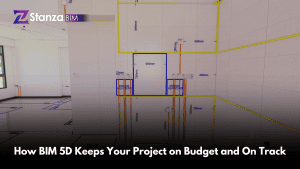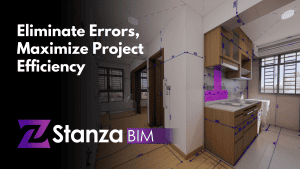In today’s construction sector, sustainability stands as a paramount consideration, driven by a global imperative to minimize environmental impact and enhance resource efficiency. This shift towards sustainable construction practices isn’t merely a trend; it’s a fundamental response to the urgent need for environmental stewardship and the creation of healthier, more resilient built environments.
Sustainability in construction encompasses a broad spectrum of practices aimed at minimizing environmental impact, conserving resources, and promoting social responsibility. From reducing energy consumption and greenhouse gas emissions to optimizing water usage and enhancing indoor air quality, these practices are pivotal for mitigating climate change and fostering sustainable, livable communities. Moreover, as societies increasingly prioritize sustainability, construction firms that embrace these practices gain a competitive edge by meeting regulatory requirements, reducing operating costs, and enhancing brand reputation.
Singapore serves as a shining example of proactive sustainability initiatives within the construction sector. Notably, the Building and Construction Authority’s (BCA) Building Carbon Calculator (BCC) is a groundbreaking tool that calculates and benchmarks the embodied carbon emissions of building projects. This initiative underscores Singapore’s commitment to reducing carbon footprints and achieving green building certifications, thus setting a standard for sustainability on a global scale.
However, despite these advancements, the implementation of sustainable practices in construction encounters technological hindrances. One significant challenge is the fragmentation of data across various systems and stakeholders, leading to inefficiencies in data management and decision-making. Additionally, interoperability issues between different software platforms and data formats hinder the seamless exchange of information, thereby limiting the effectiveness of sustainability initiatives.

Addressing these challenges requires innovative solutions, such as data integration software. Valideit by Stanza Technologies exemplifies such a solution, offering comprehensive project management software that unifies data across the entire construction project lifecycle. By seamlessly integrating data from disparate sources, Valideit enables construction firms to gain a holistic view of sustainability performance metrics, resource utilization, and compliance with regulatory standards.
Through Valideit, construction firms can harness the power of integrated data to drive sustainable construction practices. By consolidating data on energy consumption, materials usage, waste generation, and environmental performance, Valideit empowers project teams to identify opportunities for improvement, optimize resource allocation, and make informed decisions that align with sustainability goals. Moreover, Valideit’s collaborative features facilitate communication and coordination among project stakeholders, fostering a culture of sustainability throughout the project lifecycle.
Sustainability isn’t just a buzzword; it’s a cornerstone of modern construction practices, essential for creating environmentally responsible and resilient built environments. By leveraging data integration software like Valideit by Stanza Technologies, construction firms can overcome technological hindrances and maximize the implementation of sustainable practices. Through unified data management, Valideit empowers construction projects to achieve greater efficiency, transparency, and sustainability, driving positive environmental and social impact for generations to come.










